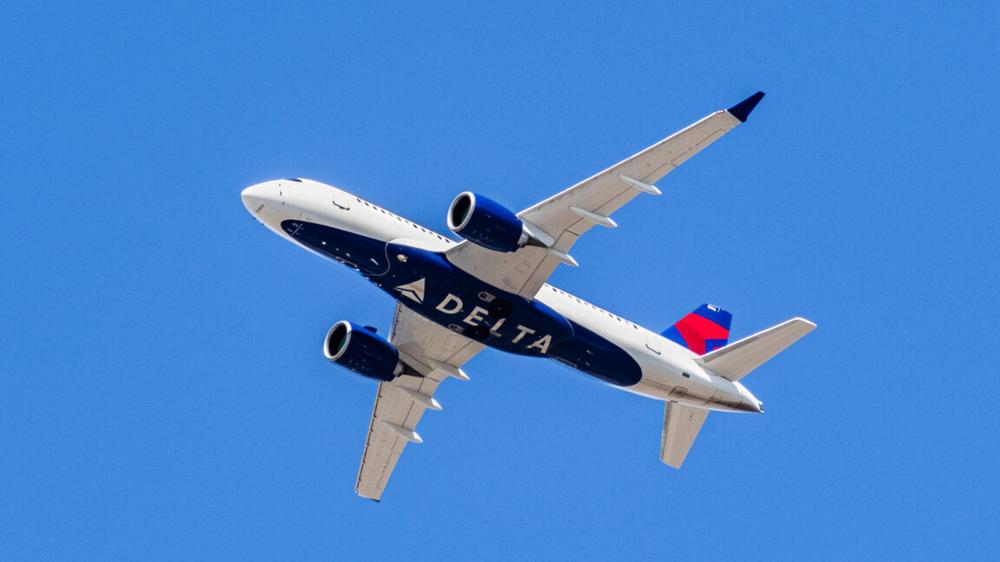Delta spent July dealing with backlash over what the airline company claims is widespread public confusion over its AI pricing system.
Now, Delta has finally come forward to break down precisely how the AI pricing works to dispute what it claims are "incorrect" characterizations by consumer watchdogs, lawmakers, and media outlets.
In a letter to lawmakers who accused Delta of using AI to spy on customers' personal data in order to "jack up" prices, Delta insisted that "there is no fare product Delta has ever used, is testing, or plans to use that targets customers with individualized prices based on personal data."
Confusion arose after Delta Air Lines President Glen William Hauenstein discussed the AI pricing on a summer earnings call. Hauenstein hyped the AI pricing as working to propel revenue, confirming that about 3 percent of domestic flights were sold using the AI pricing system over the past six months and that Delta planned to expand that to 20 percent of tickets by the end of the year.
Critics demanded transparency, raising concerns that Delta's AI pricing could lead to discriminatory pricing based on a customer's search history or prior purchases. But Delta did not rush to clarify how its AI pricing actually works until lawmakers sent a letter probing Delta's AI practices. Those lawmakers had just announced the Stop AI Price Gouging and Wage Fixing Act, with a press release that called out Delta among companies whose AI pricing models needed to be banned to prevent surveillance pricing that lawmakers fear will disproportionately disrupt fair pricing for the least wealthy.
Responding, Delta's chief external affairs officer, Peter Carter, thanked lawmakers for their "thoughtful questions regarding Delta’s use of AI," then cautioned them against making assumptions about Delta's AI pricing.
"Your letter presupposes that we are using, and intend to use, AI for 'individualized' pricing or 'surveillance' pricing, leveraging consumer-specific personal data, such as sensitive personal circumstances or prior purchasing activity to set individualized prices," Carter said. "To clarify, this is incorrect and this assumption, unfortunately, has created confusion and misinformation in the public discourse."
Delta scandal highlights value of transparency
According to Delta, the company has "zero tolerance for discriminatory or predatory pricing" and only feeds its AI system aggregated data "to enhance our existing fare pricing processes."
Rather than basing fare prices on customers' personal information, Carter clarified that "all customers have access to the same fares and offers based on objective criteria provided by the customer such as origin and destination, advance purchase, length of stay, refundability, and travel experience selected."
The AI use can result in higher or lower prices, but not personalized fares for different customers, Carter said. Instead, Delta plans to use AI pricing to "enhance market competitiveness and drive sales, benefiting both our customers and our business."
Factors weighed by the AI system, Carter explained, include "customer demand for seats and purchasing data at an aggregated level, competitive offers and schedules, route performance, and cost of providing the service inclusive of jet fuel." That could potentially mean a rival's promotion or schedule change could trigger the AI system to lower prices to stay competitive, or it might increase prices based on rising fuel costs to help increase revenue or meet business goals.
"Given the tens of millions of fares and hundreds of thousands of routes for sale at any given time, the use of new technology like AI promises to streamline the process by which we analyze existing data and the speed and scale at which we can respond to changing market dynamics," Carter wrote.
He explained the AI system helps Delta aggregate purchasing data for specific routes and flights, adapt to new market conditions, and factor in "thousands of variables simultaneously." AI could also eventually be used to assist with crew scheduling, improve flight availability, or help reservation specialists answer complex questions or resolve disputes.
But "to reiterate, prices are not targeted to individual consumers," Carter emphasized.
Delta further pointed out that the company does not require customers to log in to search for tickets, which means customers can search for flights without sharing any personal information.
For AI companies paying attention to the Delta backlash, there may be a lesson about the value of transparency in Delta's scandal. Critics noted Delta was among the first to admit it was using AI to influence pricing, but the vague explanation on the earnings call stoked confusion over how, as Delta seemed to drag its feet amid calls by groups like Consumer Watchdog for more transparency.

 With all eyes on Kyiv, its surrounding villages are unspoken victims of Russian attacks
With all eyes on Kyiv, its surrounding villages are unspoken victims of Russian attacks